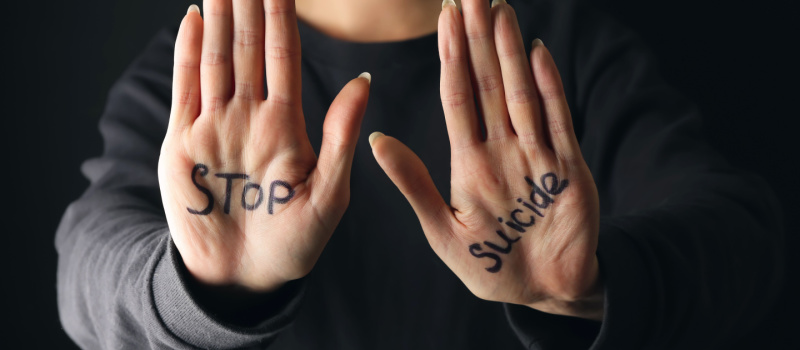Suicide Prevention: Warning Signs, Risk Factors, and Ways to Help
The Nystrom & Associates provider consulted for this article is Dr. Karin Ryan, PsyD, LP, Clinic Director, and Outpatient Therapist.
Suicide is a serious public health concern in the United States. According to data from the Centers for Disease Control and Prevention (CDC), suicide is the 10th leading cause of death in the country, with an average of 129 suicides per day.
The highest suicide rate is among adults between the ages of 45 and 54, and men are more likely to die by suicide than women. However, women are more likely to attempt suicide. The suicide rate among veterans is also high, with 20 veterans dying by suicide each day.
Suicide Risk Factors
There are several risk factors that can increase a person's likelihood of attempting or dying by suicide. These include mental health conditions such as depression and bipolar disorder, substance abuse, a history of trauma or abuse, and a family history of suicide. Access to firearms is also a significant risk factor, as more than half of all suicides in the United States are committed with a gun. Related: 5 Ways to Prevent Substance AbuseWarning Signs of Suicide
It is important to recognize the warning signs of suicide, which can include talking about wanting to die, being a burden, being isolated, expressing feelings of hopelessness or worthlessness, talking about feeling trapped, sleep changes, increased alcohol or drug use, and displaying extreme mood swings. If you see this in a loved one, please ask them directly about suicidal thoughts (this will not cause someone to become suicidal) and help them connect to a professional. Other times there are no apparent external risk factors but hidden pain, sadness, or despair that builds up. We then can regard suicide as a means of solving problems that we view as insolvable.Preventing Suicide
To raise awareness about suicide, it is important to remove the stigma surrounding mental health and encourage people to seek help if they or someone they know may be at risk. If someone you know is in crisis or needs immediate help, call the National Suicide Prevention Lifeline at 988. The line is answered by people who understand suicidality and emotional crisis and can help you work through them. Related: 5 Mental Health Myths Debunked There are also a number of organizations that provide support, resources, and information about suicide prevention, including the American Foundation for Suicide Prevention, the Suicide Prevention Resource Center, and the National Alliance on Mental Illness. There are also protective factors to prevent suicide outlined by Dr. Karin Ryan, such as:- Coping skills
- Support from friends and family
- Faith beliefs
- Feeling connected
- A strong sense of identity
- Reasons for living
Nystrom & Associates on Suicide Prevention
Watch Dr. Karin Ryan on Twin Cities Live as she discusses the warning signs of suicide and how therapy can help those with suicidal thoughts.Therapy for Suicidal Thoughts
Another key protective factor is being in therapy. All therapists are skilled in asking about and understanding suicidal thoughts, plans, and attempts. Therapy is a safe and supportive place to talk about it and to feel heard and understood.It is important to remember that suicide is preventable and that help is available for those struggling. By recognizing the warning signs and reaching out to those in need, we can work together to reduce the number of suicide deaths. Related: 6 Signs of Mental IllnessIn therapy, you work together to assess and understand your suicidality. You can openly and sincerely talk about it and have help in solving the problems that had begun to feel unsolvable. You and your therapist make a plan for how to cope when in crisis or how to ride out waves of pain or hopelessness. Therapy provides you with the skills to manage and then reduce the pain.

